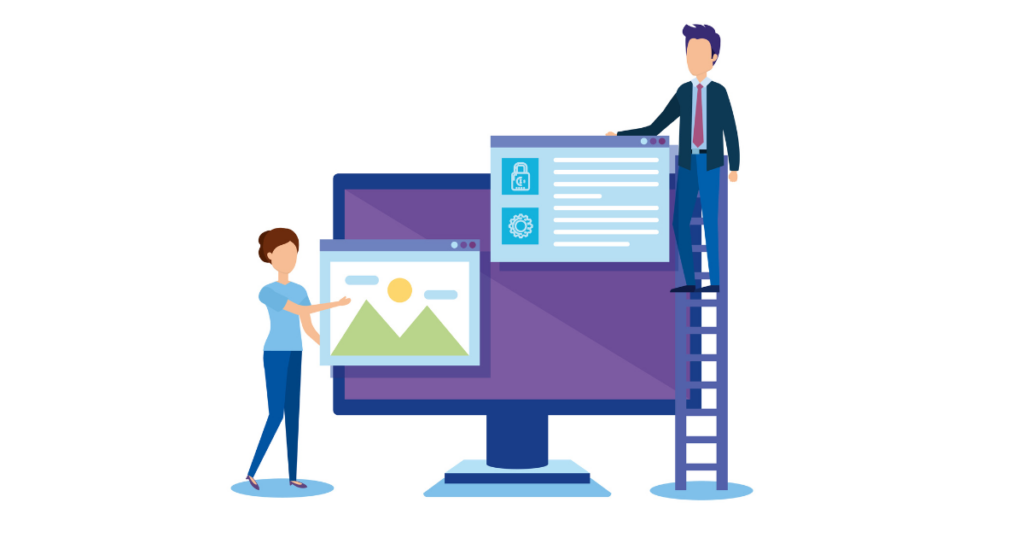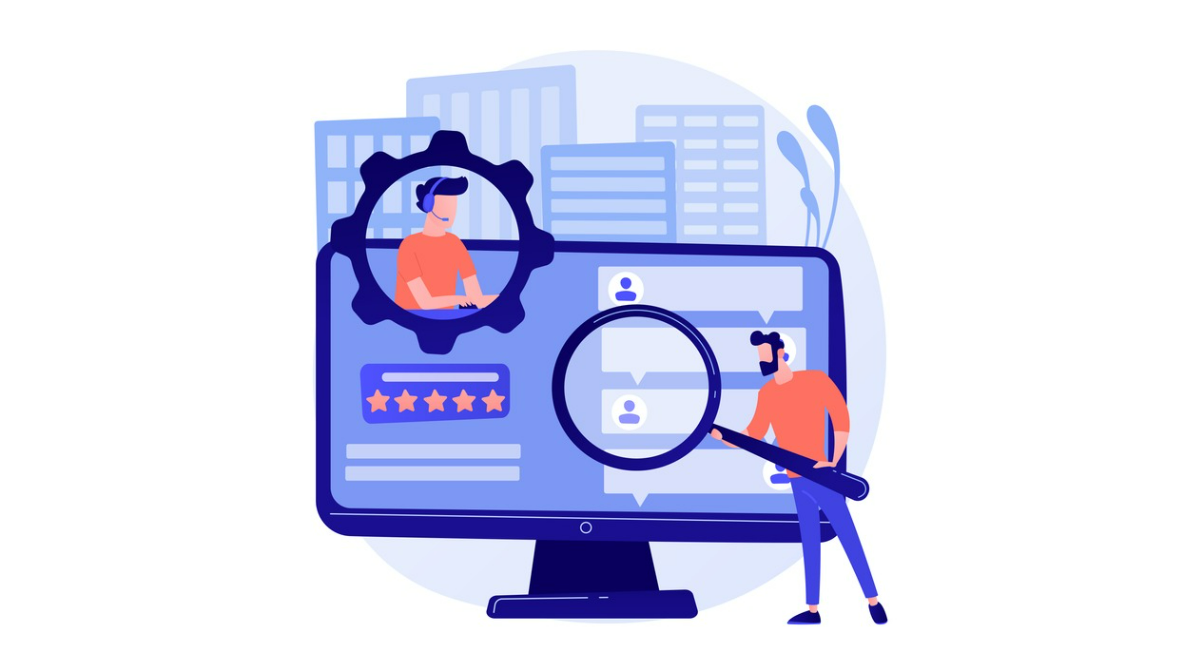Data protection is considered paramount in the field of technology, where everything happens in a flash nowadays. In an evolving landscape of technology so rapidly, especially when any particular one proceeds with the practice known as Testing as a Service, data security is considered most important.
While organizations are increasingly leveraging TaaS to deliver effective and efficient testing solutions, understanding the criticalness of safeguarding sensitive information arises.
If followed, the right protocols will not only help businesses streamline their processes of testing but also enhance their security posture to a better position that ensures data integrity and confidentiality across all phases in the lifecycle of the project.
Introduction of Data Security in TaaS

Software testing as a service is a new model of testing that outsources software testing by businesses to specialized suppliers.
Besides being very cost-effective, this route makes available testing by domain specialists with state-of-the-art tools and methodologies. However, this increasing dependency on TaaS introduces one key challenge: data security.
Data security in TaaS is highly critical. First, sensitive data flow between agencies and their providers increases, and several companies involved create a situation where risks are much higher: data breaches, unauthorized access, and other security threats.
Moving forward, this blog will explain why data security in TaaS is important, some best practices, and actionable tips to ensure safe outsourcing procedures.
The Growing Need for Secure TaaS
Trends in TaaS Adoption
In fact, the adoption of Testing as a Service has gone through the roof for the last couple of years. More and more companies are adopting the services of TaaS providers for their software testing requirements.
The reason is simple: it saves money, provides access to specialized expertise, and helps scale the testing effort rapidly. Additionally, TaaS on cloud computing allows flexibility and scalability; hence, it is becoming very appealing to businesses of any size.
Risks Associated with Insecure Testing as a Service (TaaS)
Yet, despite these advantages, Testing as a Service also carries a variety of risks. Perhaps the most relevant issue for nearly every organization today concerns data security.
Outsourced testing services mean that sensitive information about users' data, financial records, and even the firm's intellectual property become vulnerable to various threats.
Unsecured Testing as a Service, when not handled appropriately, may result in data breaches, regulatory penalties, and cause great harm to the reputation of a company. Understanding such risks largely builds a foundation for effective security measures.
Understanding Data Security in Testing as a Service (TaaS)

Key Elements of Secure TaaS Practices
A few items are key components of the playbook to make the data secure in Testing as a Service:
- Data Encryption:Data in flight and at rest needs to be encrypted. This adds additional security, wherein even though the data may be intercepted, it cannot be read by anybody without the required keys for decryption.
- Access Controls: Access controls are the means by which sensitive information is granted to a number of persons with variance in levels. Role-based access makes sure users can view or manipulate data only under given permissions.
- Regular Audits: Periodic audits of the security features assure no vulnerabilities are left behind and that the security is updated. These audits can either be done internally or by third-party security experts. Best Practices for Securing Data in TaaS.
Best Practices for Securing Data in Testing as a Service (TaaS)
This will help minimize the occurrence of data breach events in Testing as a Service. Following is the key best practices that can be implemented concerning data security in TaaS:
- Choose Reputable Providers: Utilize only those TaaS providers who have a good record in terms of data security. Check their certifications, such as ISO 27001, an assurance that the provider commits to information security management.
- Use Strong Authentication Methods: Implement strong authentication mechanisms, such as MFA, which would add another layer of security. Consequently, it would be very hard to breach if tried through unauthorized manners.
- Monitor and Log Activity: Log in great detail any and every activity that relates to the access and manipulation of data, which would help detect suspicious behavior and provide an audit trail when investigations are warranted.
Ensuring Safe Outsourcing Practices
Selecting Trustworthy TaaS Providers
Selecting the proper TaaS provider is all about making sure data is secure. To start, the following may be considered:
- Reputation and Reviews: Search for the provider's reputation online. Check other client reviews about them. Any trace of data breaches or other security incidents should be a cause for concern.
- Security Protocols: Inquire about the security protocols applied within their processes. A reliable provider would have no issues being open about their security measures to discuss with you.
- Compliance: Find out whether the provider adheres to relevant data protection regulations and standards, mainly if you are handling sensitive customer data.
The Role of Encryption and Access Controls
Encryption and access controls play major roles in securing the data when using TaaS:
- Encryption: It ensures end-to-end encryption, meaning that from the time data leaves your environment to its destination, it should be secure. This is very important for data in transit.
- Access Controls: An RBAC system helps control who accesses your sensitive data. By designating roles and permissions, you ensure that even on your side, there is only access provided to data sets by specific personnel.
Regulatory Compliance and TaaS
Overview of Major Data Protection Regulations
Compliance with data protection regulations is a legal requirement for many businesses. Some of the major regulations to be aware of include:
- GDPR (General Data Protection Regulation): This EU regulation levies some strict data protection requirements on companies operating with the personal data of its citizens.
- CCPA (California Consumer Privacy Act): A California state law that affords consumers more control over their personal information and businesses with more clarity on the collection and use of consumer data.
- HIPAA (Health Insurance Portability and Accountability Act): A US federal law setting minimum standards for the protection of sensitive patient health information.
How TaaS Can Align with Regulatory Requirements
Ensuring that your TaaS provider is compliant with all relevant regulations could help you avoid financial fines, damage to your brand reputation, and even lawsuits:
- Data Processing Agreements: There needs to be clear agreements on how an outsourcing TaaS provider processes data in order for them to ensure that there is conformity with the regulations regarding such processing of data.
- Data Minimization: Ensure that limited data is disclosed to only the amount required for the task. This reduces the exposure surface area and helps with adherence to the principle of data minimization.
- Regular Compliance Audits: Run regular audits to ensure that the observance of compliance with the regulation concerning protection of data is adhered to. This may include frequent internal reviews and third-party assessments.
Case Studies: Successful Implementation of Secure TaaS
Real-World Examples of Companies Implementing Secure TaaS
As discussed, here are some real-world examples of companies that have put through security mechanisms within TaaS:
- Company A: Partnering with the right TaaS firm followed by imposing intensive encryption and access controls enabled this company to reduce its cost of testing by 30% while securing its data.
- Company B: Company B, after going through a data leak, re-built their testing processes and then selected a TaaS vendor that implemented enterprise-grade security in their systems. That would bring better protection of data and retained the confidence in the customers.
- Company C: Company B, after going through a data leak, re-built their testing processes and then selected a TaaS vendor that implemented enterprise-grade security in their systems. That would bring better protection of data and retained the confidence in the customers.
Outcomes and Benefits Achieved
These companies achieved significant benefits from their secure TaaS implementations:
- Cost Savings: Reducing the need for in-house testing resources led to substantial cost savings.
- Improved Security: Implementing best practices and partnering with trustworthy providers enhanced data security.
- Scalability: The ability to scale testing efforts quickly allowed these companies to meet growing demands without compromising quality.
Book a Demo and experience ContextQA testing tool in action with a complimentary, no-obligation session tailored to your business needs.
Conclusion
Data Security in Testing as a Service is not a best practice; it's an imperative of ownership. As more companies start shifting their software testing to TaaS, the need for security will scale correspondingly.
By understanding the key elements of secure Testing as a Service, following best practices in security, and using a reputable provider, you can protect sensitive information and maintain regulatory compliance.
TaaS is bright with prospects for the future, continuous developments in AI, and automation augmenting testing at different levels. However, data security will always be paramount.
Begin now by implementing the strategies discussed herein to take first steps toward secure TaaS practices.
Discover how our security solutions for TaaS can benefit your organization. Try our free trial today and enjoy peace of mind, knowing that your data is safe.
Also Read - Top Benefits of Testing as a Service (TaaS): Scalability, Expertise, and Cost Efficiency
We make it easy to get started with the ContextQA tool: Start Free Trial.
